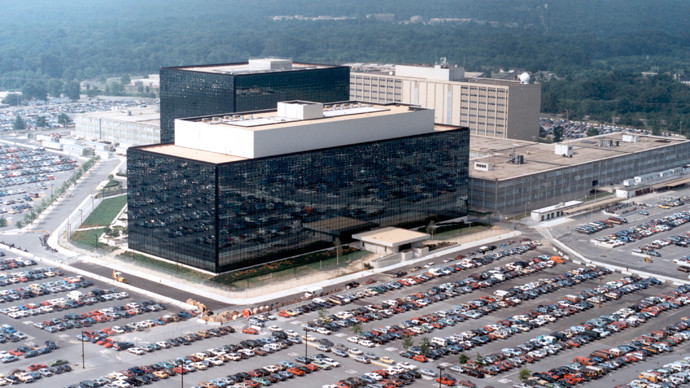White House moves to expand 'sharing intelligence between NSA, FBI and CIA'

The Obama administration is reportedly moving to broaden the current scope of information sharing between the National Security Agency (NSA) and other US intelligence agencies by stripping away existing restrictions on who exactly has access to communications data scooped up by surveillance programmes.
The change would impact the sharing of both phone calls and email content collected alongside data from satellite transmissions and messages acquired from overseas intelligence agencies, according to The New York Times.
Up until this point, the NSA experts have filtered communications data and surveillance content before it reaches the rest of the government – including agencies such as the FBI and the CIA. Once implemented, the new system would allow analysts at these other agencies to obtain direct access to raw information from the NSA collections.
The goal of the proposals, according to Brian Hale, director of public affairs for the Office of the Director of National Intelligence, is "to ensure that they protect privacy, civil liberties and constitutional rights while enabling the sharing of information that is important to protect national security".
However, not everyone is in favour of the plan. "Before we allow them to spread that information further in the government, we need to have a serious conversation about how to protect Americans' information," Alexander Abdo, an American Civil Liberties Union (ACLU) lawyer, told the New York Times in response.
Based on the numerous disclosures made as a result of the Edward Snowden documents, the abilities of a small selection of NSA spying programmes have been made public. These include Prism, XKeyscore and Boundless Informant, all of which reportedly give the agency a slew of invasive powers from social media snooping to email, phone call and text message interception.
The concern for the government now must be whether increasing information-sharing capabilities will lead to a greater chance of future leaks – especially after the ease in which Chelsea Manning and Edward Snowden both compromised huge troves of secret data. Indeed, following the now infamous NSA-leaks in 2013, James Clapper, the director of national intelligence, warned that government security is all based on 'personal trust'.
The hurt caused by Snowden is still being felt in US government circles. Michael Hayden, the now-retired former director of secretive spy agencies including the NSA and the CIA recently hit out at the contractor-turned-whistleblower by branding him ""an incredibly naïve, hopelessly narcissistic and insufferably self-important defector".
© Copyright IBTimes 2025. All rights reserved.























